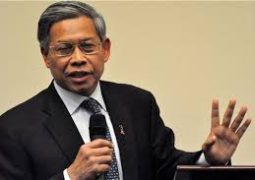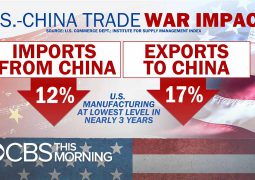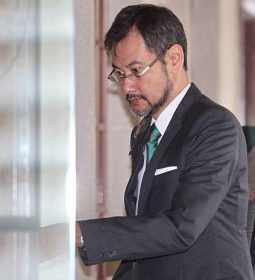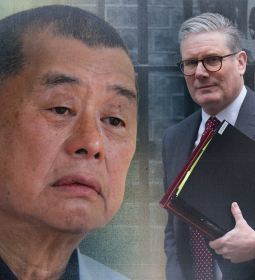Tourism to food, Buddhist Thailand hunts halal gold
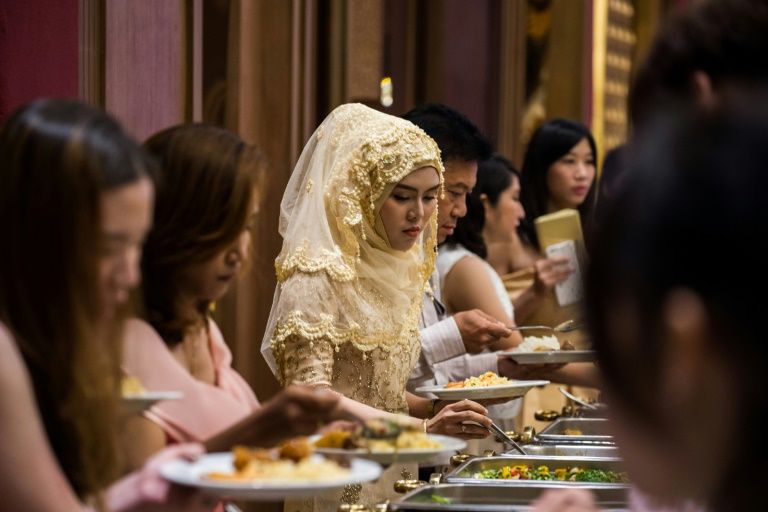
Jerome Taylor, AFP
From hotels with segregated swimming pools to jelly made from seaweed instead of pig bones, Buddhist Thailand is chasing halal gold as it welcomes Muslim visitors and touts its wares to the Islamic world.
Inside the cavernous dining hall of the five-star Al Meroz hotel in a Muslim suburb of Bangkok, an elderly man with a wispy beard recites verses of the Koran as a nervous-looking groom awaits the arrival of his bride.
The young man bursts into a smile as his soon-to-be wife appears, clad in a brilliant white dress with matching headscarf.
The ceremony is one of dozens of marriages held over the last few months at the Al Meroz — the city’s first entirely halal hotel.
Thailand has long been a draw for the world’s sun-seekers and hedonists, drawn to its parties, red-light districts, cheap booze and tropical beaches.
But it has also seen a huge influx of visitors from Muslim countries, part of a quiet but deliberate strategy by the Southeast Asian nation to diversify its visitor profile.
“Considering there are 1.5 billion Muslims around the world, I think this is a very good market,” explains Sanya Saenboon, the general manager of the hotel, one of a growing number of businesses serving a boom in Islamic tourists.
The hotel opened its doors last year, setting itself apart with its attention to all things Islamic.
For a start there is no alcohol on sale, while the top floor swimming pool and gym has specific times for when men and women can use the facilities.
Everything in the building has been ticked off against stringent checklist for practicing Muslims, from bed linen washed in a particular way, to ensuring toiletries are free of alcohol or animal fat — making everyday goods “permissible” for the faithful.
Sanya, who is Muslim, says such checks give visitors “peace of mind” so clients never have to ask themselves “can I eat this?”
– ‘Ahead of the curve’ –
Despite a decade of political turbulence, Thailand has seen an explosion in tourist arrivals, from 13.8 million annual visitors in 2006 to a record 32.5 million last year.
Western arrivals have largely remained a constant. The biggest increase in arrivals comes from China, skyrocketing from just 949,000 arrivals 10 years ago to 8.7 million visitors in 2016.
But Muslim countries are also sending their citizens.
An AFP analysis of government figures shows visitors from key majority Muslim nations in the Middle East and Asia have risen from 2.63 million in 2006 to 6.03 million last year.
“Thailand was ahead of the curve,” says Fazal Baharden, founder of the Singapore-based Crescent Rating, which rates which countries are most welcoming to Muslim travellers.
Thailand routinely places in the top two for non-Muslim majority nations alongside Singapore in Crescent Ratings’ annual survey of halal destinations.
“They’ve really recognised the Muslim consumer market is worth tapping into,” he explains, adding medical tourism, shopping and high quality hotels are the primary draws.
Baharden says the Islamic travel market is one of the world’s fastest growing thanks the growth of cheap flights and booming Muslim middle classes.
He estimates the number of Muslim travellers has surged from around 25 million a year in 2000 to 117 million in 2015.
But it is not just at home that Thailand has gone halal.
– Food gets halal makeover –
From chicken and seafood to rice and canned fruit, the country has long been one of the world’s great food exporters.
Now a growing numbers of food companies are switching to halal to widen their customer base.
Against a backdrop of humming machines churning out butter, Lalana Thiranusornkij, a Buddhist, explains how her family turned their three factories — under the KCG Corporation banner — halal to access markets in Indonesia, Malaysia and in the Gulf.
But going halal sometimes required some clever workarounds, such as how to avoid animal based gelatin to make jelly.
“In the past we used gelatin from pork but… we changed our gelatin from the pork source to be from a seaweed source,” she said.
Thailand’s junta has set the goal of turning the country into one of the world’s top five halal exporting nations by 2020.
Some outsiders might be surprised to see an overwhelmingly Buddhist nation embrace halal.
But Dr Winai Dahlan, founder of the Halal Science Centre at Bangkok’s Chulalongkorn University, says Thailand was well placed to make the change.
- Previous Afghan Officials Say at Least 50 Died in Attack on Hospital
- Next No plans to air Tun Mahathir-Nazri debate: RTM



